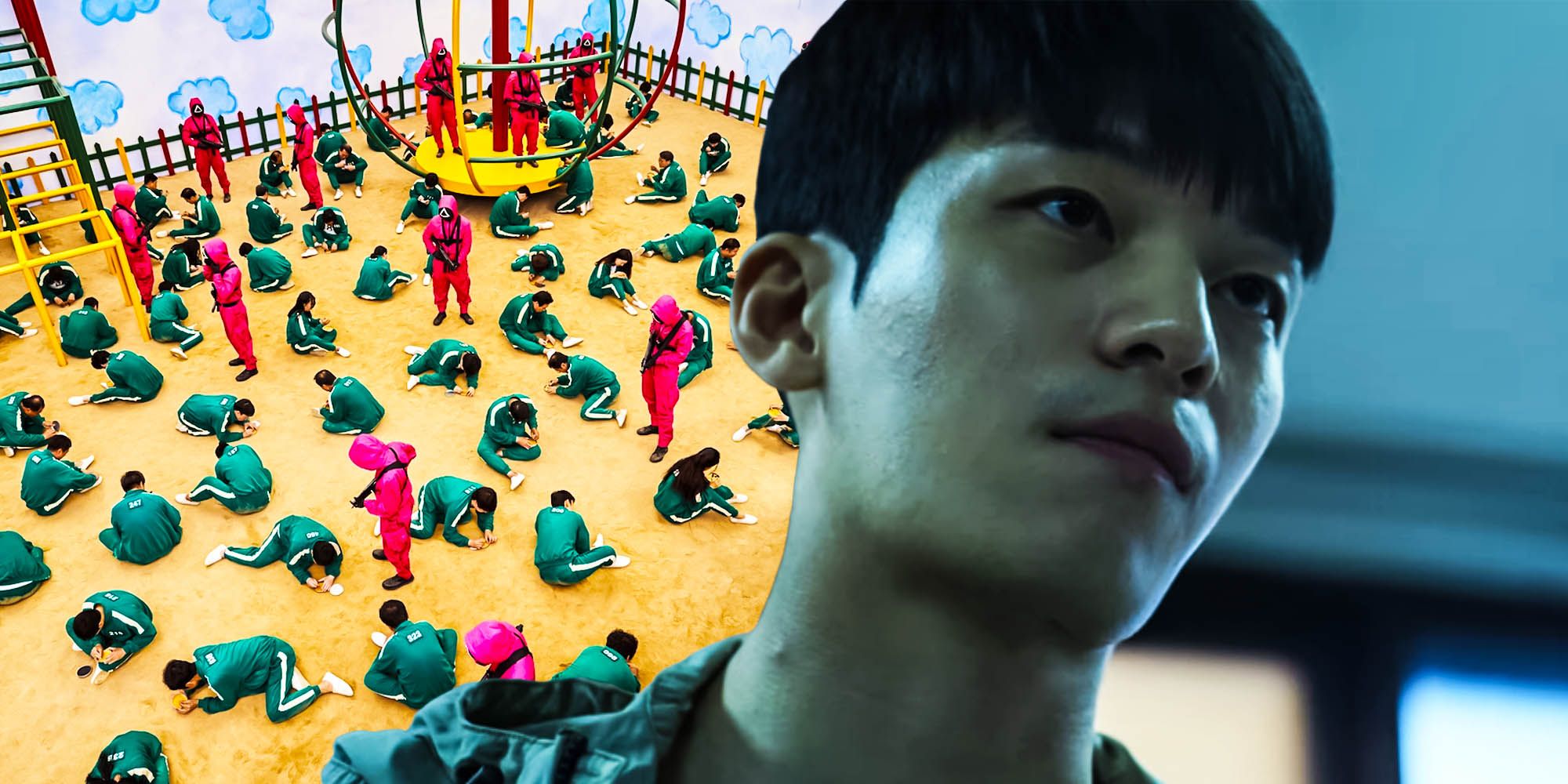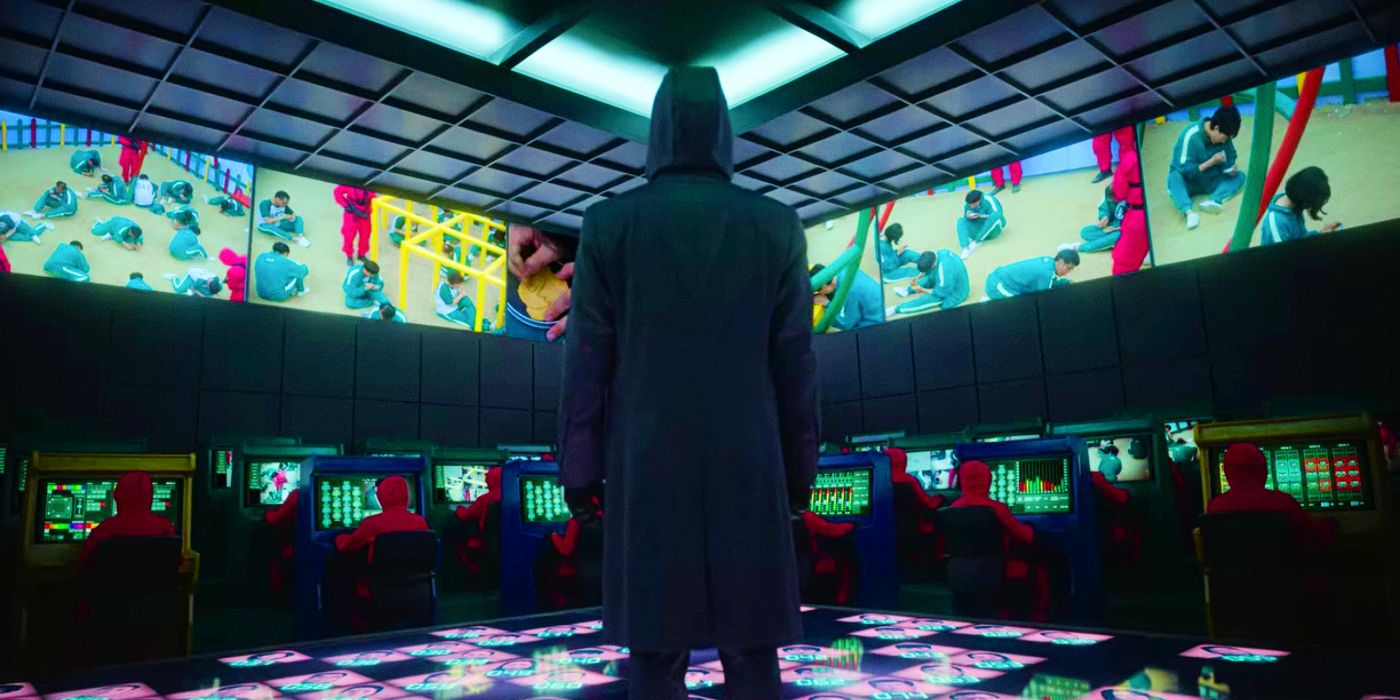
Netflix's Korean survival drama Squid Game has captured the imagination of a global audience, but how exactly does the game stay a secret despite so many people going missing? The Netflix smash hit establishes that a group of wealthy individuals recruit competitors with massive debts to vie for Squid Game's 45.6 billion Won prize, and it follows 456 of these competitors as they engage in the titular games. The premise of the game - and the show - is that 455 participants will die during the games, leaving one winner to take the prize money, pay off their debts, and live in comfort for the rest of their life.
Through the investigation of Jun-ho, a policeman who infiltrates the game disguised as one of its masked workers, it's revealed that the games have been running for 30 years. Assuming that each game has around 400 participants and (as the epilogue implies) that one occurs roughly once per year, that would mean an estimated body count of 11,970 - which is an awful lot of missing people to cover up. The theory that Jun-ho is still alive might see him bring the game's existence to light in a potential Squid Game season 2, but the real question is: just how has it been kept a secret for so long?
The show does imply an answer, but it's one that requires a lot of clarification. The game is run by the Front Man - later revealed to be Jun-ho's brother, In-ho - but it exists in order to entertain some of the world's wealthiest and most powerful people, known in Squid Game as the VIPs. With this level of financial backing behind it, it can be surmised that large sums of money are able to secure the game's continued existence. Squid Game's Old Man twist reveals that Oh Il-nam, also known as Player 001, is the game's founder, but it doesn't specify exactly how he has been able to keep it hidden for so long - although one of the most likely answers lies within the show's narrative theme.

Squid Game's story is rooted in South Korea's class divide and highlights the massive disparity of wealth within the country as well as examining the way in which the wealthy look at the people they deem beneath them. The most likely explanation for how the game remains a secret is that its selected players are all desperate people whose disappearance can be easily explained - Sang-woo is wanted by the police, Sae-byeok is a North Korean defector, and Gi-hun is a gambling addict with massive debt. The common theme is that Squid Game's cast of characters all exist on the bottom rung of a society that doesn't value them and that their disappearance will largely go unnoticed.
This is evidenced in episode 2 when Gi-hun approaches the police, and they laugh him off. They dismiss his story as outlandish as he has no real credibility, with only Jun-ho willing to investigate in an unofficial capacity in hopes of finding his brother. It certainly appears that choosing its competitors carefully is key to the game's continued secrecy, but it may even be more important that its workers are chosen carefully. From the events Jun-ho witnesses during his infiltration of the island, it's clear that complete obedience is required of the workers, and steps are surely taken to choose Squid Game's workers carefully in order to ensure their silence.
It seems that Squid Game's VIPs are the largest contributors to the game's ability to remain hidden, but this is something that's implied rather than stated. However, money and influence alone can't guarantee silence, so it's most likely that the game employs other contingencies against those seeking to expose it. Exactly what those methods might look like will surely come into play in Squid Game's hypothetical season 2, as Gi-hun made his intentions to expose the game all too clear.
Comments
Post a Comment